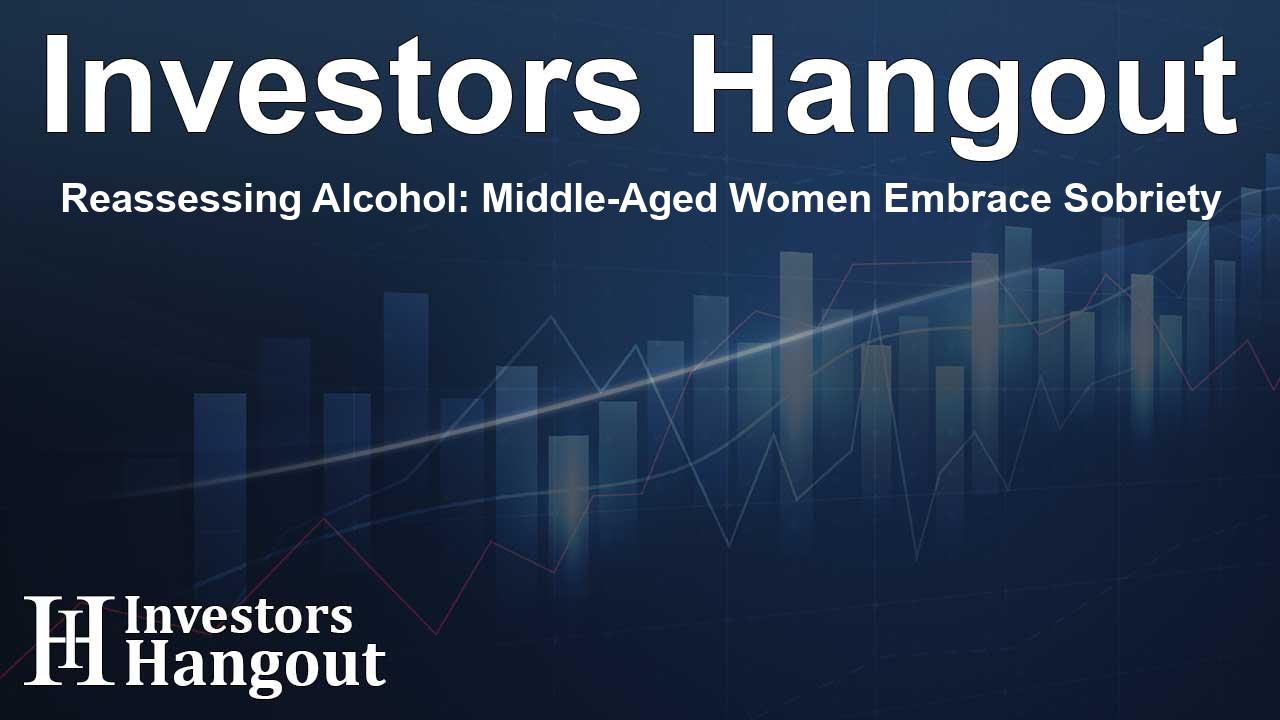Reassessing Alcohol: Middle-Aged Women Embrace Sobriety

Changing Perspectives on Alcohol Among Middle-Aged Women
A recent survey sheds light on how alcohol consumption is being viewed by middle-aged women, especially in light of a significant warning from the U.S. Surgeon General regarding the links between alcohol and cancer. Conducted by Censuswide, the survey surveyed 1,001 American women aged 40 to 65, revealing compelling insights into their drinking habits, motivations, and the barriers faced when considering reducing or quitting alcohol. These findings resonate strongly as conversations about alcohol use evolve, particularly among women navigating their midlife.
The Drinking Decade: Insights from Women in Their 40s
Among the participants, those in their 40s displayed notable trends in their alcohol consumption. Approximately 28% reported that they drink more now compared to their 20s, indicating a significant shift in their drinking behaviors during this critical decade of their lives. This age group is often grappling with various life transitions and pressures, which can influence their drinking practices.
Reasons for Drinking Among Middle-Aged Women
Survey results also uncovered various reasons why women in this age bracket are consuming alcohol. Just over one-third of the respondents admitted to using alcohol as a means to unwind or manage anxiety. Another striking detail was that 28% reported drinking more following a breakup, highlighting emotional connections to drinking habits.
Moreover, almost 25% of mothers indicated they utilize alcohol to manage the stresses of parenting, while 28% drink to alleviate feelings of loneliness. Additionally, 40% of single women mentioned relying on alcohol to diminish anxiety related to dating.
Health Concerns Linked to Alcohol Consumption
While the short-term effects of alcohol may provide some relief, many women are beginning to acknowledge the negative consequences associated with its use. For instance, 32% of respondents indicated they experience gut health issues and digestive discomfort after drinking, while 27% reported disrupted sleep linked to their alcohol intake. Further, nearly 25% claimed that alcohol exacerbates feelings of anxiety and depression, and 23% noted memory issues tied to alcohol use.
Barriers to Seeking Help
The survey also highlighted the barriers women face when considering support for their drinking habits. Though nearly half of participating women expressed concern about their alcohol consumption and potential dependency, many still hesitate to seek help. About 18% feel too ashamed to reach out for assistance, while 32% assert they are not yet ready to quit. Financial limitations and lack of time also present significant hurdles for 16% and 13% of respondents, respectively.
Encouraging a Shift Towards Sobriety
Encouragingly, there is a noticeable shift among women reevaluating their relationship with alcohol. Approximately 30% of respondents reported exploring sober lifestyles or reducing their drinking. This trend is bolstered by innovations in nonalcoholic beverages and alcohol detection technology, such as the SOBRsure band. These advances empower women to change their drinking habits and make healthier choices.
SOBRsafe aims to support this cultural transformation and provide tools and resources for those looking to cut back or quit drinking altogether. By promoting open discussions about alcohol use, the hope is to inspire meaningful change and foster environments where women feel safe seeking help.
ABOUT SOBRsafe
SOBRsafe focuses on next-generation alcohol detection technologies to enable trust and promote recovery. Their innovative transdermal technology detects alcohol levels through the user's skin, creating a passive screening solution without invasive methods. By offering comprehensive support, SOBRsafe plays a crucial role in the wellness journeys of many individuals.
Frequently Asked Questions
What findings were revealed in the recent survey about women and alcohol?
The survey showed that many middle-aged women are questioning their drinking habits due to concerns related to alcohol and health issues.
What age group is particularly affected by alcohol use?
Women in their 40s display pronounced drinking behaviors, with many reporting increased consumption since their 20s.
What are some common reasons women provided for drinking alcohol?
Common reasons include managing anxiety, coping with loneliness, and stress relief related to parenting.
What barriers do women face when seeking help for alcohol dependency?
Barriers include feelings of shame, financial limitations, and not feeling ready to quit drinking.
What technologies are supporting women in their journey toward sobriety?
Technological innovations like the SOBRsure band empower women by aiding them in tracking alcohol consumption and making healthier choices.
About The Author
Contact Lucas Young privately here. Or send an email with ATTN: Lucas Young as the subject to contact@investorshangout.com.
About Investors Hangout
Investors Hangout is a leading online stock forum for financial discussion and learning, offering a wide range of free tools and resources. It draws in traders of all levels, who exchange market knowledge, investigate trading tactics, and keep an eye on industry developments in real time. Featuring financial articles, stock message boards, quotes, charts, company profiles, and live news updates. Through cooperative learning and a wealth of informational resources, it helps users from novices creating their first portfolios to experts honing their techniques. Join Investors Hangout today: https://investorshangout.com/
The content of this article is based on factual, publicly available information and does not represent legal, financial, or investment advice. Investors Hangout does not offer financial advice, and the author is not a licensed financial advisor. Consult a qualified advisor before making any financial or investment decisions based on this article. This article should not be considered advice to purchase, sell, or hold any securities or other investments. If any of the material provided here is inaccurate, please contact us for corrections.
